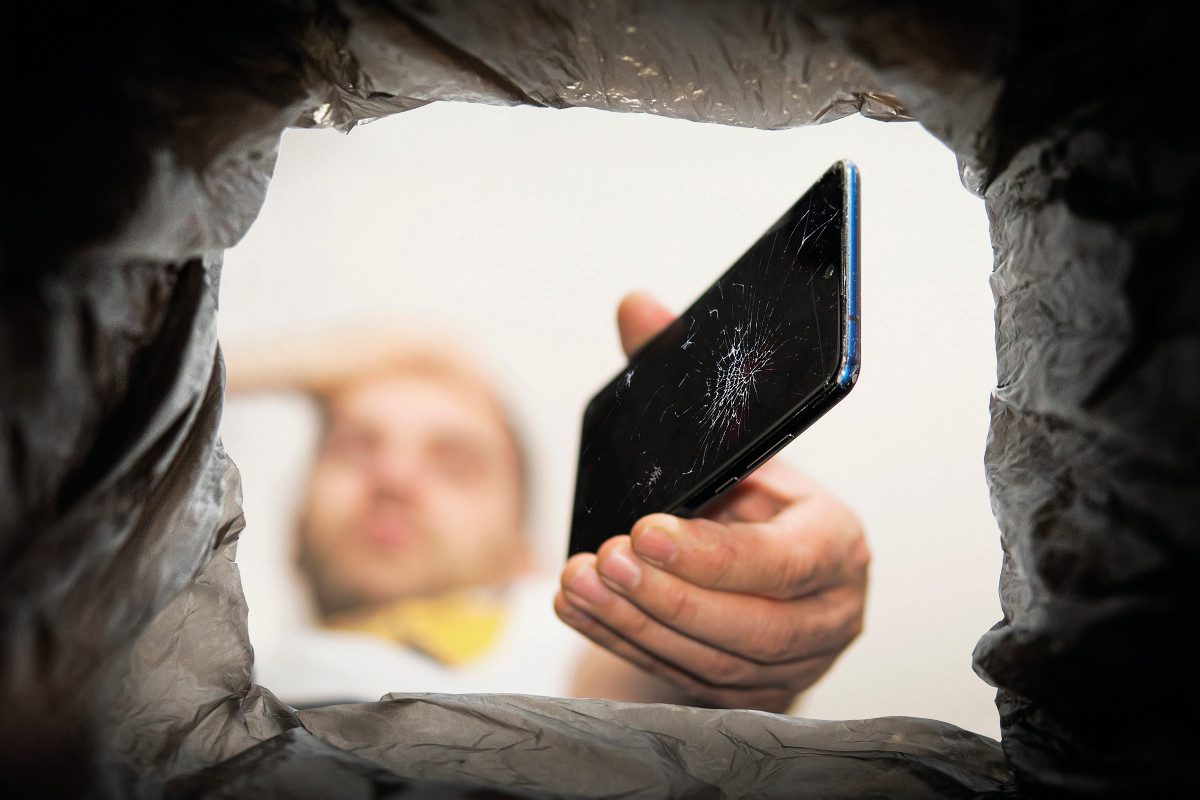
Vodafone announced “a major initiative” on 23 February to extend the life of new mobile phones and encourage customers to trade in or recycle their old devices.
Starting in European markets from Spring 2022, customers of the mobile operator will be offered “a comprehensive and convenient suite of services, including insurance, support and repairs for their devices”. The firm said it will also launch a new digital platform making it straightforward for customers to agree trade-in options for their existing phones.
It will also encourage customers to return any mobile devices that are at the end of their ability to function, and, “wherever possible, will ensure that they are recycled responsibly or repurposed for social or charitable causes”. In addition, the company says it will begin to offer a wider range of high-quality, competitively priced refurbished smartphones at retail.
A strategic partnership between Vodafone and refurbished smartphone reseller Recommerce, covering wholesale trade-in and asset management, will enable “Europe’s largest smartphone customer base to benefit from high quality, pre-owned devices at retail”.
Alex Froment-Curtil, Vodafone Group Chief Commercial Officer, said: “Vodafone has a leading role to play in developing and driving a circular economy for mobile devices that significantly reduces their impact on the environment. We are pioneering a comprehensive, digital offering that makes it easier for our customers to extend the life of their current smartphone, or to buy and own a refurbished device.”
Augustin Becquet, CEO Recommerce said: “We are very proud to launch this partnership together with Vodafone who are launching the largest and most advanced device lifecycle management program in Europe. We are convinced of the real impact of such a long-term partnership for the environment and to fight climate change.”
Keeping a phone handset for an extra year can reduce its lifetime CO2e impact by up to 29%.[1] Purchasing a refurbished smartphone saves around 50 Kg CO2e – 20% or less than the equivalent newly manufactured smartphone – and removes the need to extract 164 Kg of raw materials.[2] More than 50,000 tonnes of CO2e could potentially be avoided for every million smartphones Vodafone receives via trade-in that are subsequently refurbished and resold.[2]
Most Vodafone markets already operate trade-in, device buyback and repair services to encourage customers to repair or return their old devices. The new commitment will, says Vodafone, ensure that all customers in Europe will be able to benefit from a comprehensive, consistent digital approach, including:
- Insurance for new phone purchases, giving protection against accidental damage.
- Flexible trade-in options via a simple-to-use consumer app, enabling customers to swiftly receive payment for their existing handset or credit towards the purchase of a newer phone.
- Fast repair services that can extend the life of accidentally damaged devices.
- Retailing at scale a range of high-quality refurbished, pre-owned handsets alongside newer devices.
- Encouraging customers to hand back their old mobile phones for recycling or for social / charitable causes.
Vodafone launched a “Bring Back Friday” consumer campaign across several markets on Black Friday, 26 November 2021. This was intended to encourage customers to trade in their old phones and receive credit for new devices, whilst ensuring that devices are recycled or repurposed responsibly.
Network waste commitment
Vodafone has pledged to reuse, resell, or recycle 100% of its network waste by 2025. To deliver this, the firm says it has implemented resource efficiency and waste disposal management programmes across every market to minimise the environmental impact of network waste and redundant IT equipment.
Vodafone operates an internal asset marketplace that encourages its markets to re-sell and re-purpose excess stock or large decommissioned electrical items like masts and antennae, with results showing an 89% lower carbon impact for reused equipment compared with purchasing new equipment.[3] The company says it is currently assessing the possibility of expanding the solution to partner markets and other operators.
Waste partnerships
In 2021, the mobile operator joined the Circular Electronics Partnership, which brings together companies across the value chain to drive circularity solutions for electronics.
In May 2021, it also joined forces with four of Europe’s leading network operators to launch a new pan-industry Eco Rating labelling scheme to help consumers identify and compare the most sustainable mobile phones and encourage suppliers to reduce the environmental impact of their devices.
Carbon emissions and energy efficiency
In November 2020, Vodafone set an approved 2030 Science-Based Target in line with carbon reductions required to keep global warming to 1.5C, becoming the first major telecoms operator to follow the emission reduction pathway developed for the ICT sector.[4]
By 2030, Vodafone says it will eliminate its carbon footprint from its own activities and from energy it purchases and uses (Scope 1 and 2). Vodafone also pledged that by 2030 it will halve carbon emissions from Scope 3 sources, including joint ventures, all supply chain purchases, the use of products it has sold and business travel.[5]
By 2040, Vodafone “will have eliminated its Scope 3 carbon footprint completely” – seemingly bringing forward by ten years its original 2050 ambition to reach ‘net zero’ across its full carbon footprint.[6]
Notes
[1] 2019 European Economic and Social Committee study Identifying the impact of the circular economy on the Fast-Moving Consumer Goods Industry: Titre: Study – Identifying the impact of the circular economy on the Fast-Moving Consumer Goods Industry – Opportunities and challenges for business, workers and consumers – mobile phones as an example (europa.eu)
[2] This takes a conservative view of the difference between the carbon emissions for a typical new smartphone (circa 50kg CO2e or greater for production alone), versus the carbon footprint for refurbishing, transport, use and recycling a typical refurbished smartphone (10kg CO2e or less). Sources are:
- Published manufacturer information on greenhouse gas emissions calculated using a life cycle assessment methodology. Examples include:
- Apple iPhone 12 64GB, entire life cycle stated as 68kg CO2e, of which 83% (56kg) relates to production.
- Apple iPhone 13 128GB, entire life cycle stated as 64kg CO2e, of which 81% (51kg) relates to production.
- Google Pixel 6, estimated GHG emissions assuming three years of use stated as 95kg CO2e, of which 81% (76kg) relates to production.
- 50Kg CO2e in total, based on a typical two-year lifespan of a refurbished smartphone – 2022 study by the French Agency for Ecological Transition ADEME): https://librairie.ademe.fr/dechets-economie-circulaire/5241-evaluation-de-l-impact-environnemental-d-un-ensemble-de-produits-reconditionnes.html
[3] Research carried out by Zevero for Shields found there was on average an 89% CO2e/kg saving for every product re-used in internal marketplaces: https://www.shields-e.com/news/2021/shields-marketplace-oem-vs-re-used-case-study-copy/
[4] Vodafone commits to net zero carbon emissions by 2040: https://www.vodafone.com/news/press-release/vodafone-commits-to-net-zero-carbon-emissions-by-2040
[5,6] Vodafone Group Plc Annual Report 2021, p38-40: https://investors.vodafone.com/sites/vodafone-ir/files/2021-05/vodafone-annual-report-2021.pdf







